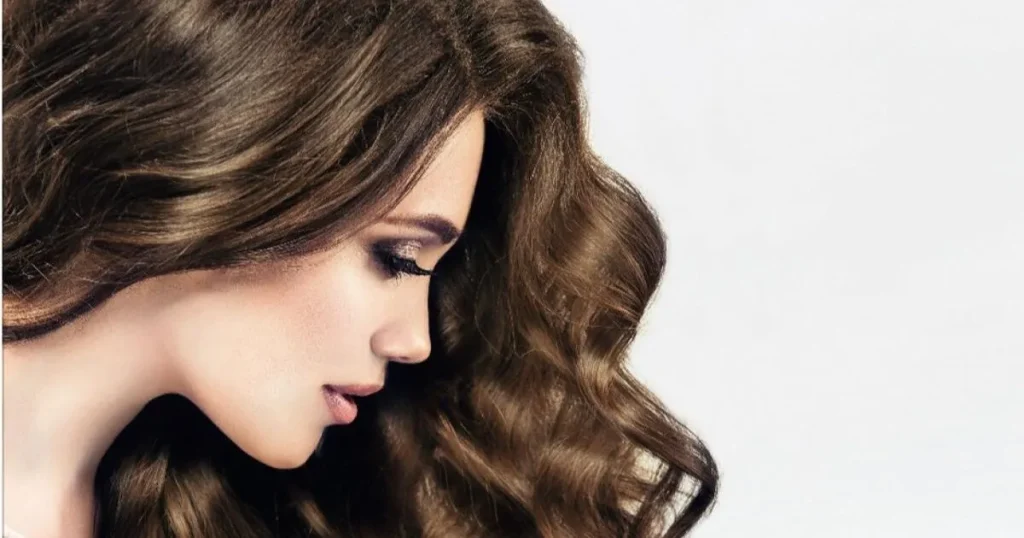Jojoba oil is a popular natural oil known for its excellent benefits for hair. People have used jojoba oil for centuries, dating back to Native American tribes who used it to treat wounds and promote hair health. Today, it is a common ingredient in many hair care products due to its ability to moisturize and nourish hair.
Natural hair care solutions are becoming more popular as people seek ways to avoid chemicals and synthetic ingredients. Jojoba oil stands out because it closely resembles our scalp’s natural oils, making it a gentle yet effective option.
In this article, we will explore the benefits of jojoba oil for hair growth and provide practical tips on using it for the best results. By the end, you’ll know why jojoba oil is a fantastic choice for healthier, stronger hair.
What is Jojoba Oil?
Jojoba oil comes from the seeds of the jojoba plant, which grows in desert areas like the southwestern United States and Mexico. The oil is extracted through a process called cold pressing. This method involves crushing the seeds to release the oil without using heat, which helps keep the oil’s nutrients intact.
Jojoba oil is unique because it isn’t technically an oil but a liquid wax. It has a light, non-greasy texture, and a long shelf life. Jojoba oil is rich in vitamins and minerals that are great for hair, including vitamin E, B-complex vitamins, and zinc. Its composition makes it very similar to our scalp’s natural oils, which is why it’s so beneficial for hair.
Nutritional Profile
Jojoba oil is packed with nutrients that promote hair health. Here are some of its key components:
Vitamin E: This vitamin is a powerful antioxidant that helps repair and protect hair from damage. It also promotes a healthy scalp.
B-Complex Vitamins: These vitamins are essential for maintaining strong and healthy hair. They help reduce hair loss and support hair growth.
Zinc: This mineral helps keep the scalp healthy and can reduce dandruff. It also plays a role in tissue growth and repair, vital for hair growth.
Fatty Acids: Jojoba oil contains essential fatty acids that moisturize the hair and scalp, preventing dryness and breakage. These fatty acids help create a barrier that locks in moisture and protects hair from environmental damage.
Benefits of Jojoba Oil for Hair
Moisturizing Properties
Jojoba oil is excellent at keeping hair hydrated. It acts like the natural oils your scalp produces, which means it can add moisture without making hair greasy. When you apply jojoba oil, it penetrates the hair shaft, providing deep moisture. This can help prevent dryness and make hair feel soft and smooth.
Scalp Health Improvement
A healthy scalp is key to healthy hair. Jojoba oil can help with that by balancing the oils on your scalp. If you have too much oil, jojoba oil can help reduce it. If your scalp is dry, it can add the moisture you need. This balance helps keep your scalp healthy and reduces problems like dandruff and itchiness.
Hair Strength and Shine Enhancement
Jojoba oil can make your hair stronger and shinier. It contains vitamins and minerals like vitamin E and B-complex, which are great for hair health. These nutrients can repair damage and add a natural shine to your hair. Regular use of jojoba oil can lead to hair that looks and feels healthier.
Potential to Promote Hair Growth
Many people use jojoba oil to help their hair grow. Jojoba oil creates a suitable environment for hair growth by keeping the scalp healthy and moisturizing hair. It can also prevent hair from breaking, so your hair can grow longer and stronger over time.
How Jojoba Oil Promotes Hair Growth
Scalp Health
Jojoba oil is similar to the natural oils produced by your scalp. Using it helps balance the oil production, preventing both oily and dry scalp conditions. A balanced scalp is less likely to suffer from issues that can stunt hair growth, like clogged hair follicles.
Dry scalp can lead to dandruff and flakiness. Jojoba oil’s moisturizing properties can help mitigate these issues by keeping the scalp hydrated. A healthy, flake-free scalp is more conducive to hair growth.
Hair Follicle Stimulation
Massaging jojoba oil into your scalp can improve blood circulation. Better circulation means more oxygen and nutrients reach the hair follicles. This can stimulate hair growth by giving the follicles the resources they need to grow healthy hair.
Jojoba oil contains essential nutrients like vitamins E and B-complex, zinc, and copper. When you apply the oil, these nutrients are delivered directly to the hair roots, nourishing them and promoting more robust hair growth.
Hair Shaft Protection
Jojoba oil can strengthen hair and make it less prone to breakage. It smooths the hair cuticle, reducing the chances of split ends and breakage. Stronger hair shafts mean longer, healthier hair growth.
Environmental factors like sun exposure and pollution can damage your hair. Jojoba oil adds a protective layer to the hair shaft, shielding it from these harmful elements. This protection helps maintain the health of your hair and promotes growth by preventing damage.
How to Use Jojoba Oil for Maximum Benefits
Pre-Shampoo Treatment
Warm the Oil: Pour a small amount of jojoba oil into a bowl and warm it slightly. You can do this by placing the bowl in warm water.
Apply to Scalp: Part your hair into sections and apply the warm oil directly to your scalp using your fingertips.
Massage Gently: Massage the oil into your scalp for 5-10 minutes. Use circular motions to increase blood flow.
Distribute Through Hair: Spread the remaining oil through the lengths of your hair, focusing on the ends.
Leave It On: Allow the oil to sit on your hair for at least 30 minutes. For deeper conditioning, leave it overnight.
Rinse and Shampoo: Wash your hair thoroughly with your regular shampoo to remove the oil.
Benefits of a Pre-Shampoo Treatment:
Moisturizes Hair: Keeps hair hydrated and prevents dryness.
Reduces Frizz: Helps smooth the hair cuticle, reducing frizz.
Protects Hair: Shields hair from the harsh effects of shampooing.
Leave-In Conditioner
Start with Damp Hair: After washing your hair, gently towel dry it until it’s damp but not dripping.
Apply a Few Drops: Pour a few drops of jojoba oil into your palms and rub them together.
Distribute Evenly: Run your hands through your hair, focusing on the ends and avoiding the roots to prevent greasiness.
Style as Usual: You can usually style your hair. The oil will keep your hair moisturized and manageable.
Benefits of Using It as a Leave-In:
Adds Shine: Gives hair a natural, healthy shine.
Tames Frizz: Helps control frizz and flyaways.
Detangles Hair: Makes combing through hair easier, reducing breakage.
Scalp Massage
1. Warm the Oil: Use slightly warmed jojoba oil for a soothing effect.
2. Apply to Scalp: Part your hair into sections and apply the oil directly to your scalp.
3. Massage with Fingertips: Use your fingertips to massage the oil into your scalp gently. Move in small circles.
4. Duration: Massage for about 10-15 minutes.
Frequency and Duration for Best Results
Frequency: Massage your scalp 2-3 times a week.
Duration: Each session should last 10-15 minutes to enhance blood circulation and promote hair growth.
Hair Mask
1. Basic Jojoba Mask: Mix two tablespoons of jojoba oil with one tablespoon of honey. Apply to hair and leave for 30 minutes.
2. Nourishing Mask: Combine two tablespoons of jojoba oil with one mashed avocado. Apply to hair and leave for 20 minutes.
How Often to Use a Hair Mask
Frequency: Use a jojoba oil hair mask once a week for deep conditioning.
Results: Consistent use will leave your hair softer, shinier, and more manageable.
Mixing with Other Products
1. Mix with Coconut Oil: Combine equal parts of jojoba and coconut oil for a deep conditioning treatment.
2. Add to Shampoo: Mix a few drops of jojoba oil into your shampoo for added moisture.
3. Blend with Essential Oils: Add a few drops of essential oils like lavender or rosemary to jojoba oil for a fragrant boost.
Precautions and Best Practices
Patch Test: Always do a patch test before using jojoba oil or any new mixture to avoid an allergic reaction.
Avoid Overuse: Using too much oil can make your hair greasy. Start with a small amount and adjust as needed.
Store Properly: Keep jojoba oil in a cool, dark place to maintain effectiveness.
Jojoba oil offers numerous benefits for hair growth. It improves scalp health, reduces dandruff, and strengthens hair follicles, creating a healthy environment for hair growth. Regular use of jojoba oil can lead to stronger, shinier, and healthier hair. By incorporating jojoba oil into your hair care routine, you can enjoy its natural nourishing properties and support your hair’s overall well-being.
FAQs about Jojoba Oil for Hair Growth
Can jojoba oil make my hair grow faster?
Jojoba oil can help create a healthy environment for hair growth. It doesn’t directly speed up hair growth but improves scalp health. A healthy scalp means stronger hair follicles, less hair loss, and potentially thicker hair. Jojoba oil supports better hair growth conditions by moisturizing the scalp and reducing dandruff.
How often should I use jojoba oil for best results?
For best results, use jojoba oil 2-3 times a week. Apply it as a pre-shampoo treatment, a leave-in conditioner, or a scalp massage oil. Consistency is key, so regular use helps maintain scalp health and nourishes your hair. Find a routine that works for you and stick to it.
Can I leave jojoba oil in my hair overnight?
Yes, you can leave jojoba oil in your hair overnight. This deep conditioning treatment lets the oil penetrate your scalp and hair thoroughly. Apply a small amount of oil to your scalp and hair, cover your head with a shower cap, and wash it out in the morning. This method helps maximize the moisturizing benefits of jojoba oil.
Are there any side effects of using jojoba oil on hair?
Jojoba oil is generally safe for most people and rarely causes side effects. However, it is a good idea to do a patch test before using it extensively. Apply a small amount of oil to your skin and wait 24 hours to check for any allergic reaction. Avoid using jojoba oil on your hair if you experience redness, itching, or irritation.
Can jojoba oil be used on all hair types?
Yes, jojoba oil is suitable for all hair types. Jojoba oil can provide moisture and improve hair health, whether you have curly, straight, oily, or dry hair. It’s lightweight and non-greasy, making it versatile for various hair textures and needs.
- How to Use Aloe Vera for Acne: A Comprehensive Guide - June 1, 2024
- Jojoba Oil for Hair: How to Use for Maximum Benefits - May 19, 2024
- 8 Benefits of Jojoba Oil for Skin: The Ultimate Guide - May 18, 2024



